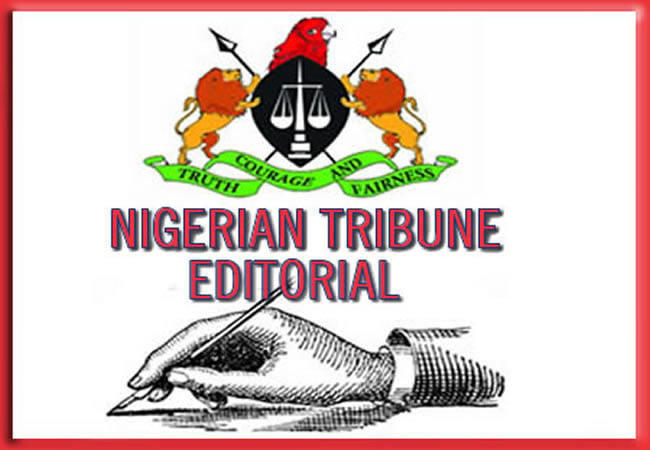THE International Criminal Court (ICC) based in The Hague, The Netherlands, announced on December 11 that it would move forward to investigate crimes against humanity and war crimes in Nigeria over the prosecution of the counter-terrorism activities against Boko Haram which have gone on for years. The announcement was made by ICC Chief Prosecutor, Fatou Bensouda. According to her, both Boko Haram and the Nigerian military might have committed acts of criminality. Her words: “My office has concluded that there is a reasonable basis to believe that members of Boko Haram and its splinter groups have committed the following acts constituting crimes against humanity and war crimes. While my office recognises that the vast majority of criminality within the situation is attributable to non-state actors, we have also found a reasonable basis to believe that members of the Nigerian Security Forces have committed the following acts.”
She went on to list those acts, including murder, rape, sexual slavery and torture, among the allegations subject to further inquiry. The decision comes after a 10-year window in which the ICC deferred to Nigerian authorities in the matter. The 10-year window was to enable Nigeria to demonstrate that its judicial system was willing and able to prosecute such crimes as required by the Rome Statute of 1998 which expects countries to execute their primary responsibility to ensure accountability at the national level.
Quite naturally, a number of justice-focused non-governmental organisations (NGOs) have hailed the ICC’s decision. Amnesty International, which has consistently accused the Nigerian military of human rights abuses and war crimes in the war against Boko Haram terrorists, welcomed the decision, calling it a milestone to ensure investigation into atrocities in Nigeria. Also, the human rights group, Access to Justice, has lauded the ICC’s readiness to investigate crimes against humanity as an investigation that is long overdue. “It is also possible that the time-lapse may have given Nigeria’s security agencies reasons for optimism that their atrocities will stay under the rug and could also have emboldened them to practice more atrocities. Both Boko Haram and Nigeria’s military forces have, until now, largely lived above the law, killing and maiming and walking away freely, and in the case of the military, finding support in governments that have been as ready to indulge its atrocities as it has been willing to commit them,” its leader declared.
On the contrary, the Chief of Army Staff, Lt-General Tukur Buratai, has disagreed with the comments of the ICC about the operations of the Nigerian military. In a swift response to the ICC, he described the proposed plan to investigate the Nigerian military for war crimes as wicked and unnecessary distractions. He commended his men for their professional conduct and recalled instances when the military helped in sustaining human rights. He insisted that the troops should not be distracted and discouraged by the ICC. He maintained that the Nigerian military had always maintained professional conduct in its operations and called on local and international organisations not to allow themselves to be used to destroy the morale of soldiers.
The Rome Statute empowers the ICC to investigate and prosecute the four core international crimes of genocide, crimes against humanity, war crimes and crime of aggression in situations where states are “unable” or “unwilling” to do so themselves. The jurisdiction of the court is therefore complementary to jurisdictions of domestic courts. In other words, the ICC is intervening because the domestic court system in Nigeria has not been able to prosecute offenders. The military authorities and the Federal Government have been resistant to criticism of abusive actions in the prosecution of the counter-terrorism war against Boko Haram. They have not supported the work of the National Human Rights Commission nor actively brought men and officers to justice when human rights abuses are publicised by relevant NGOs like Amnesty International and Access to Justice. That is why some local and foreign NGOs have hailed the proposed investigations by the ICC as a belated but welcome last resort to bring about accountability by the government and the military authorities.
The tendency of the Armed Forces and the police to disregard the law and exercise impunity in carrying out their responsibilities provoked the recent #EndSARS protests that galvanised the youth across the country. Nigeria is still suffering from the aftermath of the protests with a persisting controversy over the excessive use of force, including the killing of peaceful and unarmed protesters at the Lekki toll gate in Lagos.
We do not believe that the ICC’s investigations would diminish the morale of the soldiers on the frontlines. If anything, we expect such investigations to contribute to their professionalism. They will also contribute to holding the leadership of the military to account. Nigeria is a signatory to the Rome Treaty which it signed in 2000 and which came into force in 2002. It is therefore bound by it. No security architecture should be antithetical to the law in its operations. The military must obey the rules of engagement in prosecuting the counter-terrorism operations in the North-East and elsewhere. We call on the Federal Government to grant the ICC the assistance and cooperation it needs to effectively carry out its investigations.
YOU SHOULD NOT MISS THESE HEADLINES FROM NIGERIAN TRIBUNE
#EndSARS: As British Parliament Hears Petition, UK Govt Says It Won’t Speculate On Sanctions
The British Parliament at the Westminster Hall held a debate on ‘e-petition 554150, relating to Nigeria and the sanctions regime’ on Monday. The government of the United Kingdom has however responded…AS ICC opens Nigeria AS ICC opens Nigeria
2023 Presidency: APC Govs’ Meeting With Jonathan Sparks Controversy
The surprise visit made on Friday night by the leaders of the ruling All Progressives Congress (APC) to former President Goodluck Jonathan at his residence in Abuja triggered a stir in the major political camps, resulting in at least four possible theories..AS ICC opens Nigeria AS ICC opens Nigeria
WATCH TOP VIDEOS FROM NIGERIAN TRIBUNE TV
- Relationship Hangout: Public vs Private Proposals – Which Truly Wins in Love?
- “No” Is a Complete Sentence: Why You Should Stop Feeling Guilty
- Relationship Hangout: Friendship Talk 2025 – How to Be a Good Friend & Big Questions on Friendship
- Police Overpower Armed Robbers in Ibadan After Fierce Struggle






